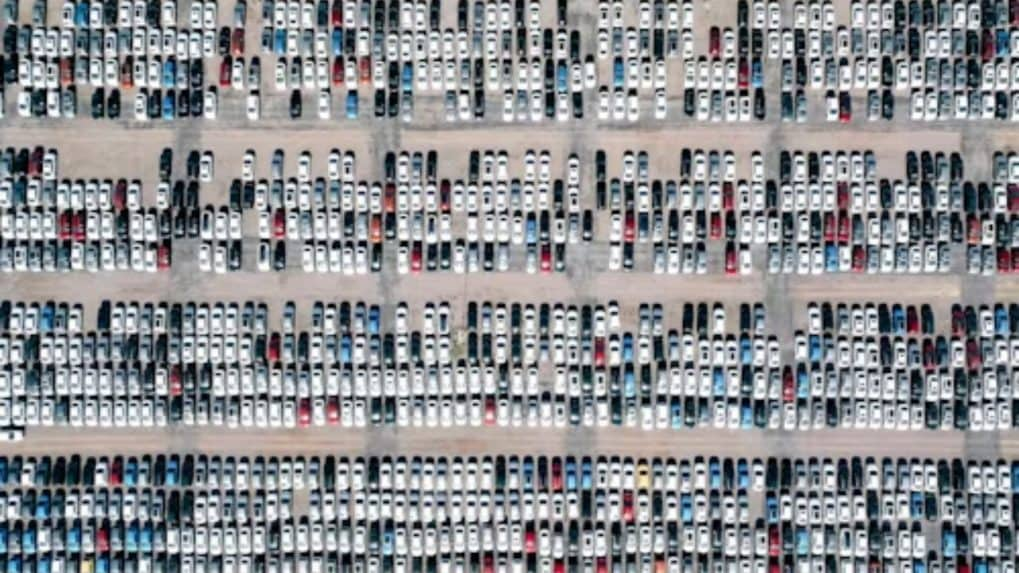Government weighs GST cuts on cars and motorcycles, promising relief for entry-level buyers
Government may slash GST on mass-market cars and two-wheelers to 18% ahead of Diwali, easing prices and reviving demand in the struggling entry-level auto segment.
ADVERTISEMENT
In a move that could offer a significant Diwali boost to the automobile industry, the government is considering a proposal to lower the Goods and Services Tax (GST) on passenger vehicles and two-wheelers — a shift that manufacturers and market analysts say would significantly improve affordability in a price-sensitive segment.
Read more: Maruti Suzuki increases advertising spends by 11.4% to ₹1,742.6 cr in FY25
Read more: Hyundai spends ₹687 crore on advertising despite profit dip in FY25
Currently, all passenger vehicles attract a GST of 28 percent, on top of which a compensation cess of between 1 percent and 22 percent is levied depending on engine size, vehicle length and body type — pushing the total tax incidence to as much as 50 percent. Electric vehicles, however, are taxed at a far lower rate of 5 percent with no additional cess.
Motorcycles face a similar burden: a GST of 28 percent, with no cess for models up to 350cc, and a 3 percent charge on larger-engine models.
Later this week, three Groups of Ministers set up by the GST Council will meet to examine a broader tax rationalization plan under consideration by the Centre, as per reports. Their recommendations will go to the full council, which will decide whether to reduce the top GST bracket and merge it with existing slabs.
According to officials familiar with the proposal, the revised structure would retain the 5 percent and 18 percent tax slabs, while eliminating the 12 percent and 28 percent categories, as Moneycontrol report stated. That could make most mass-market cars and two-wheelers significantly cheaper. To offset revenue loss, so-called sin goods — including luxury vehicles — could be taxed at 40 percent.
“This Diwali, I am going to make it a double Diwali for you,” Prime Minister Narendra Modi said during his Independence Day speech. “This Diwali, you, fellow countrymen, are going to get a very big gift.” He added that after eight years of GST reforms, “the need of the hour is that we should review it once.”
“We are coming with the next generation of GST reforms, which will be a gift for you this Diwali. Taxes needed by the common man will be reduced substantially,” he said. “Our MSMEs, our small entrepreneurs, will get a huge benefit. Everyday items will become very cheap and that will also give a new boost to the economy.”
Industry executives and analysts say the move is long overdue, particularly for entry-level vehicles that have seen demand weaken because of rising acquisition costs, tighter financing conditions and slower recovery in rural markets. Manufacturers have repeatedly blamed higher raw material costs and tougher regulatory requirements — including mandatory safety equipment and upgraded emission norms — for pushing up prices.
Executives from several automakers have urged the government to act. R.C. Bhargava, chairman of Maruti Suzuki India, has previously called for a tax overhaul to revive small-car sales. Pawan Munjal, executive chairman of Hero MotoCorp, and Rajiv Bajaj, managing director and CEO of Bajaj Auto, have likewise pressed for a reduction in the GST on two-wheelers to 18 percent. Automakers argue that a cut to 18 percent would immediately reduce ex-showroom prices and help revive demand in the lower end of the market.
Read more: Maruti Chairman flags twin threats: Trump’s tariffs abroad, policy paralysis at home


